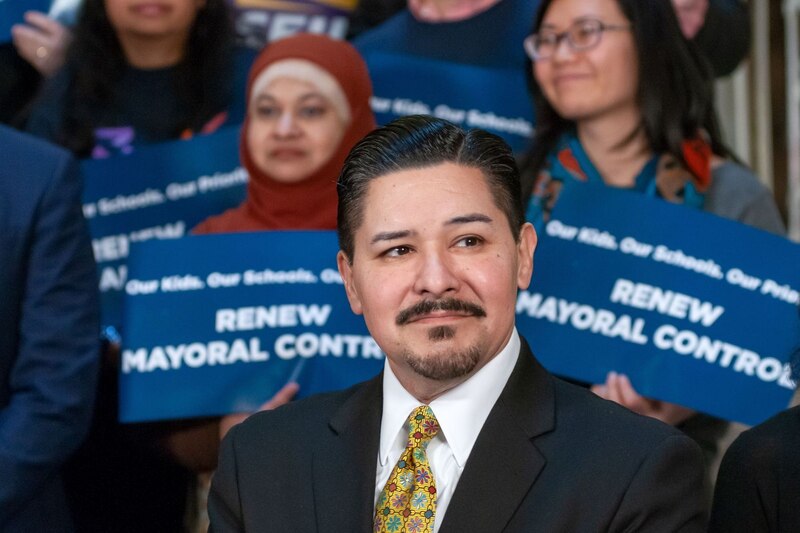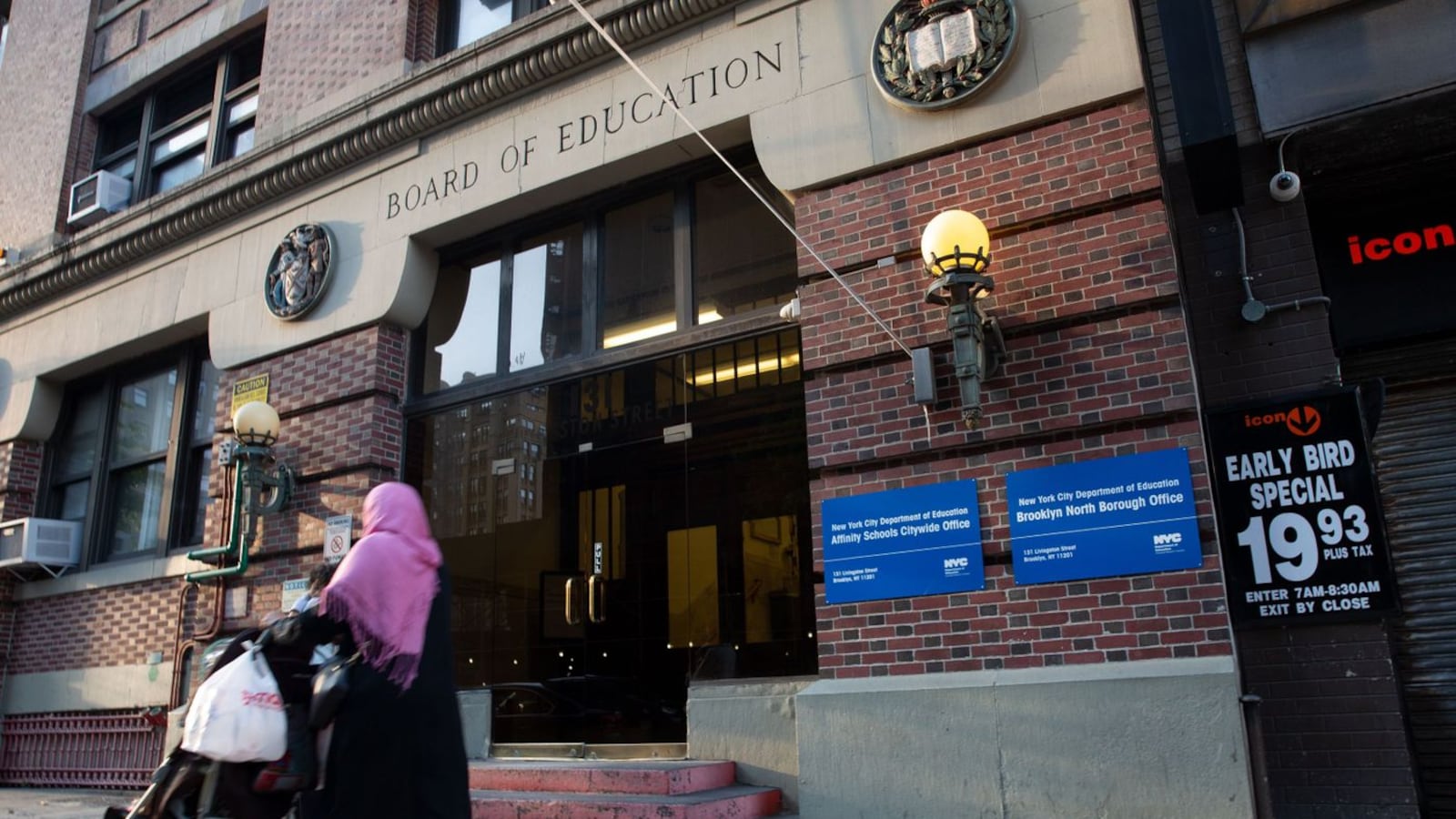
This story was originally published on Dec. 2 by THE CITY.
This is part of an ongoing collaborative series between Chalkbeat and THE CITY investigating learning differences, special education and other education challenges in city schools.
The city’s troubled system for handling complaints filed by parents of special education students has hit what lawyers are calling an “unprecedented and alarming” snag: An ongoing stretch with hearing officers unable to take on new cases.
Attorneys at Regina Skyer and Associates in Manhattan said they’ve received more than a dozen emails from the city Department of Education since Nov. 26 stating their clients would be placed on a waiting list rather than have their cases assigned to an impartial hearing officer.
Under state law, the city education department has a maximum of two days to assign a hearing officer to a case once a complaint has been received. The city Department of Education said Monday there are only five hearing officers currently available to take on additional cases.
In letters sent Wednesday to elected officials in Albany and to education officials at the state and city education departments, the Skyer firm’s attorneys called the lack of available hearing officers “a violation of the civil rights of students with disabilities.”
“What this means on a human level is disabled children going without needed services, schools and hard-working providers not being paid, and families facing the stress and hardship of mounting debt without an end in sight,” the letters read. “It is clear that we are lacking needed governmental leadership in addressing this issue.”
The number of complaints hit a high of nearly 10,000 in the last school year.

Surging Complaints
The new delays for parents seeking special education services or private tuition reimbursements for their children, which started on Nov. 18 according to the letters, come on top of well-documented problems with the adjudication system.
An independent review ordered by the State Education Department found in February that a surge in the number of complaints filed in recent years made the system “vulnerable to imminent failure and, ultimately, collapse.”
Advocates and parents say the city and state education departments share blame for ongoing problems.
The State Education Department has oversight over the special education system, including the hiring of hearing officers and setting their maximum pay rate — which is currently at $100 per hour.
In chiding the state, however, the independent review cited a court ruling that noted the “state’s role amounts to more than creating and publishing some procedures and then waiting for the phone to ring.”
Meanwhile, the city education department is responsible for administering the program, including setting the exact rate of pay — which is typically lower than the maximum because the city has decided to pay by task, not by the hour. The city education department also has struggled to mail paychecks out on time, parents and advocates say.
‘Not Worth the Effort’
The letter from the Skyer law firm cited “archaic levels of pay, payroll delays, and general poor treatment” for the “extreme dissatisfaction” of hearing officers here.
One hearing officer who has stopped accepting new cases in the city pointed to a number of unpaid tasks and unreimbursed fees that are paid for elsewhere in the state — including required paperwork, and travel and parking expenses.
“It’s just not worth the effort,” said the hearing officer, who requested anonymity.
As of July, there were 68 people authorized to be hearing officers handling special education complaints in the city, according to state education officials. But not all of those are available or willing to take cases. Officials said earlier this year they were seeking to hire and train more hearing officers by January.
At one point in June, there were just nine hearing officers available to take on cases, as THE CITY reported.
The city Department of Education emails sent to attorneys last week about the lack of available hearing officers describe an “extremely low number of hearing officers in rotation.”
A department spokesperson told THE CITY nearly 7,000 complaints have been filed since July — a rate of about 1,400 a month. The spokesperson added that five hearing officers are currently available to tackle fresh cases.
“We’ve shown our commitment to improving the impartial hearing process by adding staff, paying hearing officers on time, and upgrading the facilities,” said the spokesperson, Danielle Filson.
“The state recently changed their policy to mandate that impartial hearing officers take cases in the order that they were filed, meaning new cases may not yet be assigned,” she added. “We continue to urge the state to recruit and hire more hearing officers so that we can best serve our students and families.”
Waiting Game

That echoes the emails, which say the new waitlist system was launched at the request of the state.
“A hearing officer will be appointed to your case in accordance with this new policy,” the emails say. “Once a hearing officer appointment can be made for your case, you will receive notice via email/mail.”
Multiple emails and phone calls to the State Education Department weren’t returned.
Last month, city Schools Chancellor Richard Carranza insisted the complaints system was moving forward.
“We’ve made tremendous progress on that in the 19 months that I’ve been here,” he said at an unrelated news conference. “Parents can expect it to consistently get better.”
This story was originally published by THE CITY, an independent, nonprofit news organization dedicated to hard-hitting reporting that serves the people of New York.


